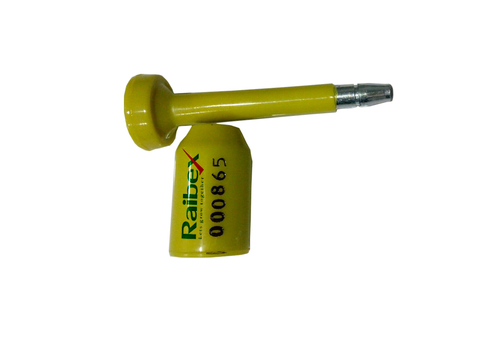ISO 17712 is an international standard that specifies requirements for mechanical seals used on containers to provide tamper evidence and enhance security during transportation. These seals are crucial in maintaining the integrity of goods while in transit, ensuring that they have not been tampered with or compromised. ISO 17712 testing services play a vital role in verifying the compliance of these seals with the standard’s stringent requirements. In Chile, these testing services are essential to support the country’s growing import and export activities.
Chile is a prominent player in international trade, with a strong focus on exporting goods such as minerals, agricultural products, and manufactured goods. As the volume of goods transported to and from Chile continues to increase, the need for robust security measures becomes even more critical. ISO 17712 testing services help ensure that containers leaving or entering the country are equipped with effective seals that meet global security standards.
The ISO 17712 standard outlines three main classes of seals based on their intended level of security: “High Security Seals,” “Indicative Seals,” and “Barrier Seals.” High Security Seals provide the highest level of tamper evidence and are suitable for securing high-value cargo. Indicative Seals are designed to show evidence of tampering but may not offer the same level of security as high-security seals. Barrier Seals are used to deter opportunistic theft and are often employed in lower-risk environments.
ISO 17712 testing services in Chile involve a series of rigorous assessments to ensure that seals meet the requirements of the standard. These tests include:
- Strength Testing: This involves subjecting the seals to various physical forces to assess their resistance to tampering. High-security seals, in particular, undergo extensive strength testing to ensure they cannot be easily broken or manipulated.
- Tamper Evidence Testing: Seals are tested to determine how effectively they show evidence of tampering. This can include testing for signs of forced entry or attempts to remove the seal without leaving visible traces.
- Environmental Testing: Seals are exposed to different environmental conditions, such as extreme temperatures and humidity, to assess their durability and reliability over time.
- Compatibility Testing: Seals are tested for compatibility with various types of containers and transport equipment to ensure they can be easily applied and provide a secure fit.
- Labeling and Documentation Review: ISO 17712 testing services also involve reviewing the labeling and documentation accompanying the seals to ensure they provide accurate information about the seal’s classification and security level.
By offering ISO 17712 testing services, Chile contributes to the global supply chain’s security and integrity. Goods leaving Chile’s ports are equipped with seals that have undergone thorough testing, providing assurance to trading partners that their cargo will arrive at its destination uncompromised. This is particularly important in industries where product authenticity and security are paramount, such as pharmaceuticals and electronics.
Conclusion:
ISO 17712 testing services in Chile play a vital role in enhancing the security of the international supply chain. As Chile continues to expand its trade activities, ensuring the integrity of goods during transit becomes increasingly crucial. By adhering to ISO 17712 standards and conducting comprehensive testing, Chile contributes to a safer and more secure global trade environment.











